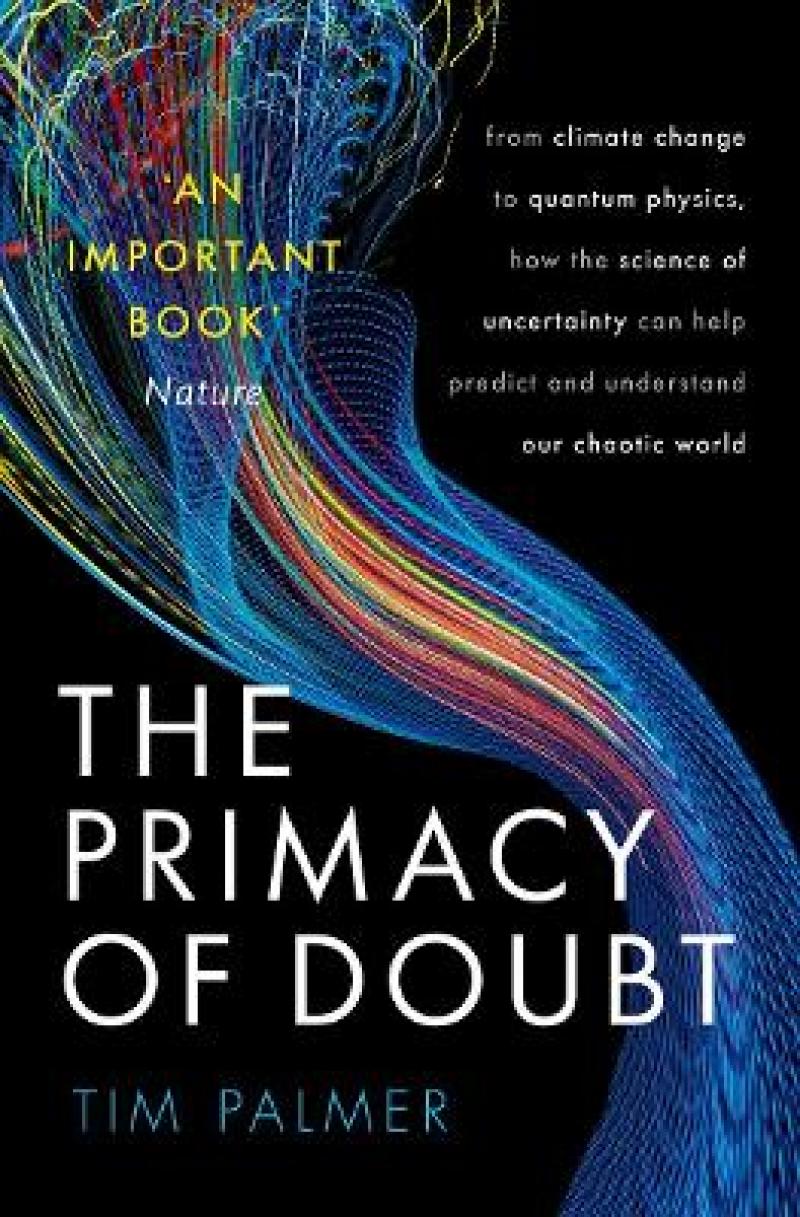A bold, visionary, and mind-bending exploration of how the geometry of chaos can explain our uncertain world—from weather and pandemics to quantum physics and free will
Covering a breathtaking range of topics—from climate change to the foundations of quantum physics, from economic modelling to conflict prediction, from free will to consciousness and spirituality—The Primacy of Doubt takes us on a unique journey through the science of uncertainty. A key theme that unifies these seemingly unconnected topics is the geometry of chaos: the beautiful and profound fractal structures that lie at the heart of much of modern mathematics. Royal Society Research Professor Tim Palmer shows us how the geometry of chaos not only provides the means to predict the world around us, it suggests new insights into some of the most astonishing aspects of our universe and ourselves. This important and timely book helps the reader makes sense of uncertainty in a rapidly changing world.
Les mer
The Primacy of Doubt takes us on a unique journey through the science of uncertainty, covering a breathtaking range of topics, from climate change to the foundations of quantum physics, economic modelling to conflict prediction, free will to consciousness.
Les mer
Introduction
Part I: The Science of Uncertainty
1: Chaos, Chaos Everywhere
2: The Geometry of Chaos
3: Noisy, Million-Dollar Butterflies
4: Quantum Uncertainty: Reality Lost?
Part II: Predicting our Chaotic World
5: The Two Roads to Monte Carlo
6: Climate Change: Catastrophe or Just Lukewarm?
7: Pandemics
8: Financial Crashes
9: Deadly Conflict and the Digital Ensemble of Spaceship Earth
10: Decisions! Decisions!
Part III: Understanding the Chaotic Universe and our Place in it
11: Quantum Uncertainty: Reality Regained?
12: Our Noisy Brains
13: Free Will, Consciousness, and God
Les mer
The Primacy of Doubt provides a remarkably broad-ranging account of uncertainty in physics, in all its various aspects. I strongly recommend this highly thought-provoking book.
Tim Palmer is a Royal Society Research Professor in the Department of Physics at the University of Oxford. Following a PhD in general relativity theory, he spent much of his career working on the predictability and dynamics of weather and climate, developing probabilistic ensemble prediction systems across a range of weather and climate timescales. He also researches the foundations of quantum physics, in addition to applications of quantum and imprecise computing.
He is a Fellow of the Royal Society and an International Member of the US National Academy of Sciences. Amongst other awards, he has won the Institute of Physics Dirac Gold Medal, and the top medals
of the American and European Meteorological Societies.
Les mer
Discusses the failures of traditional models when predicting chaotic aspects of the world, and how ensemble prediction systems, developed by the author, can guide us in predicting extreme weather, climate change, economic collapse, pandemics, and perhaps human conflict too
Describes how the geometry of chaos allows us to understand why systems can be predictable most of the time, but spectacularly unpredictable on occasion
Proposes how the geometry of chaos may provide radical and profound interpretations of fundamental physics: quantum uncertainty, and the nature of the cosmos
Considers possible insights provided by the geometry of chaos into consciousness, free will, and even the nature of God
Les mer
Produktdetaljer
ISBN
9780192843609
Publisert
2024
Utgiver
Vendor
Oxford University Press
Vekt
276 gr
Høyde
195 mm
Bredde
130 mm
Dybde
25 mm
Aldersnivå
G, 01
Språk
Product language
Engelsk
Format
Product format
Heftet
Antall sider
320
Forfatter
